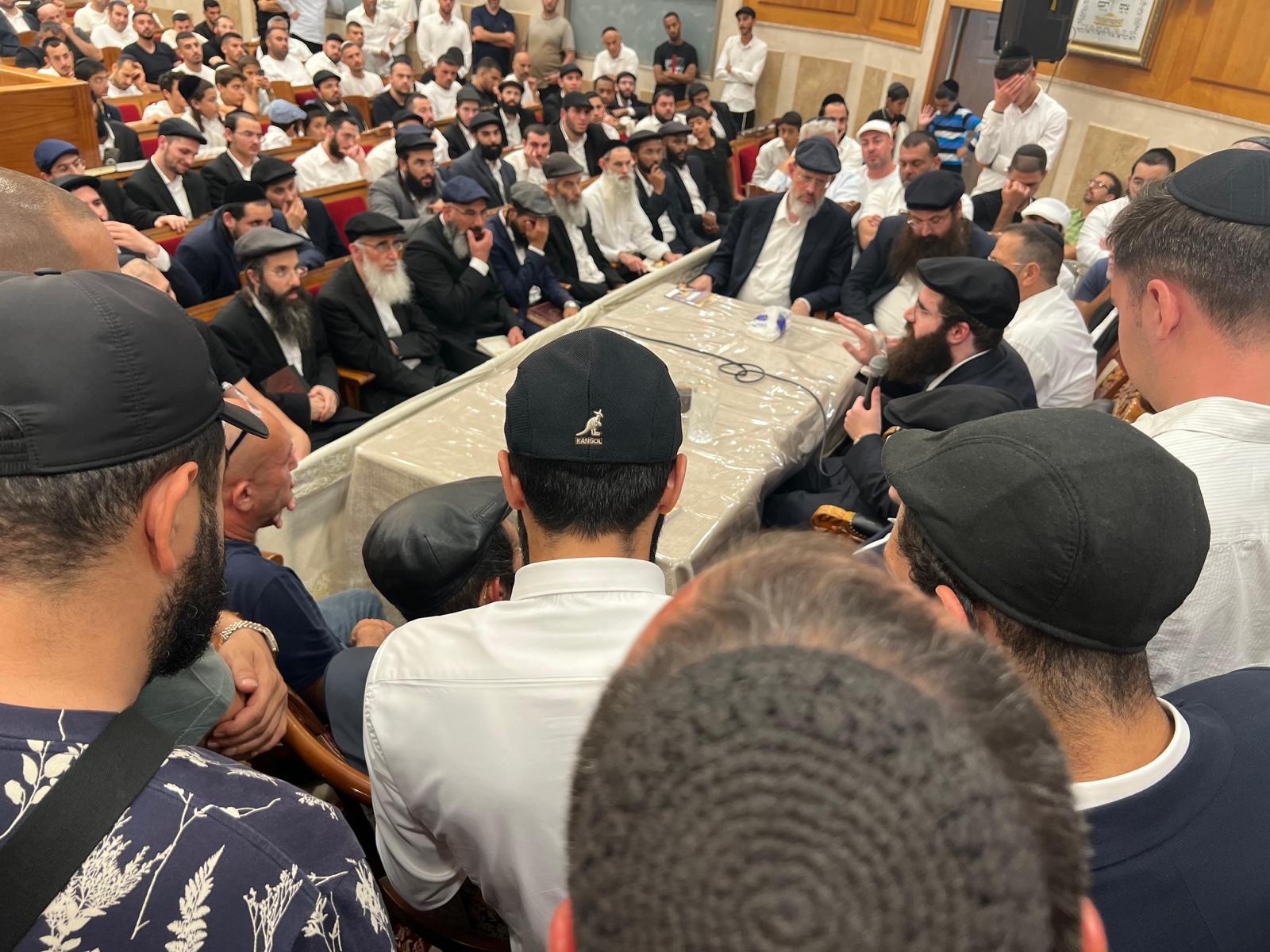The Shuva Israel Beit Midrash in Ashdod was full to the rafters. People from all over the country gathered to hear the talk of Rabbi Yoel Moshe Pinto, the eldest son of Rabbi Yoshiyahu Pinto, head of Shuva Israel institutions.
When he entered the hall of the Beth Midrash, the crowd sang in his honor. A few minutes later there was silence in the hall and Rabbi Yoel Pinto began his talk that lasted over an hour and a half.
At the beginning of his remarks, he referred to the Shuva Israel yeshiva in Ashdod where the talk took place and emphasized that his father, Rabbi Pinto, had been giving Torah classes for decades to his many students here. "I am happy and thrilled to speak in this holy place," Rabbi Yoel Pinto said.
He continued, "This is the place where our distinguished teachers and rabbis for over 20 years taught and conveyed so much Torah and laid foundations that built and molded us. These foundations will provide us a bulwark for the rest of our lives. Some rabbis and Torah scholars sprouted and grew from this place, who are today spreading Torah and belief in God throughout the world. There is enormous power here. With God's help, may this have a positive effect so that God will send our teacher and rabbi a complete recovery soon."
His talk focused on the Three Weeks that the Jewish world will begin to observe from this weekend, the 17th day of Tammuz. Rabbi Yoel Pinto expounded on these days and each person’s role to turn the days of destruction into days of renewed building and hope.
Rabbi Yoel Pinto's classes are known in the Jewish world for combining extraordinary knowledge of all branches of Torah wisdom with profound and scintillating insights. His talks are relevant to a wide variety of audiences and include guidance to improve the daily life of each person.
The Shuva Israel institutions headed by Rabbi Yoel Pinto's father, Rabbi Yoshiyahu Pinto, have existed for almost 30 years. It currently has about 100 yeshivas and study halls scattered around the world serving as centers of Torah and charity.
Watch the full talk:
This article was written in cooperation with Shuva Israel

